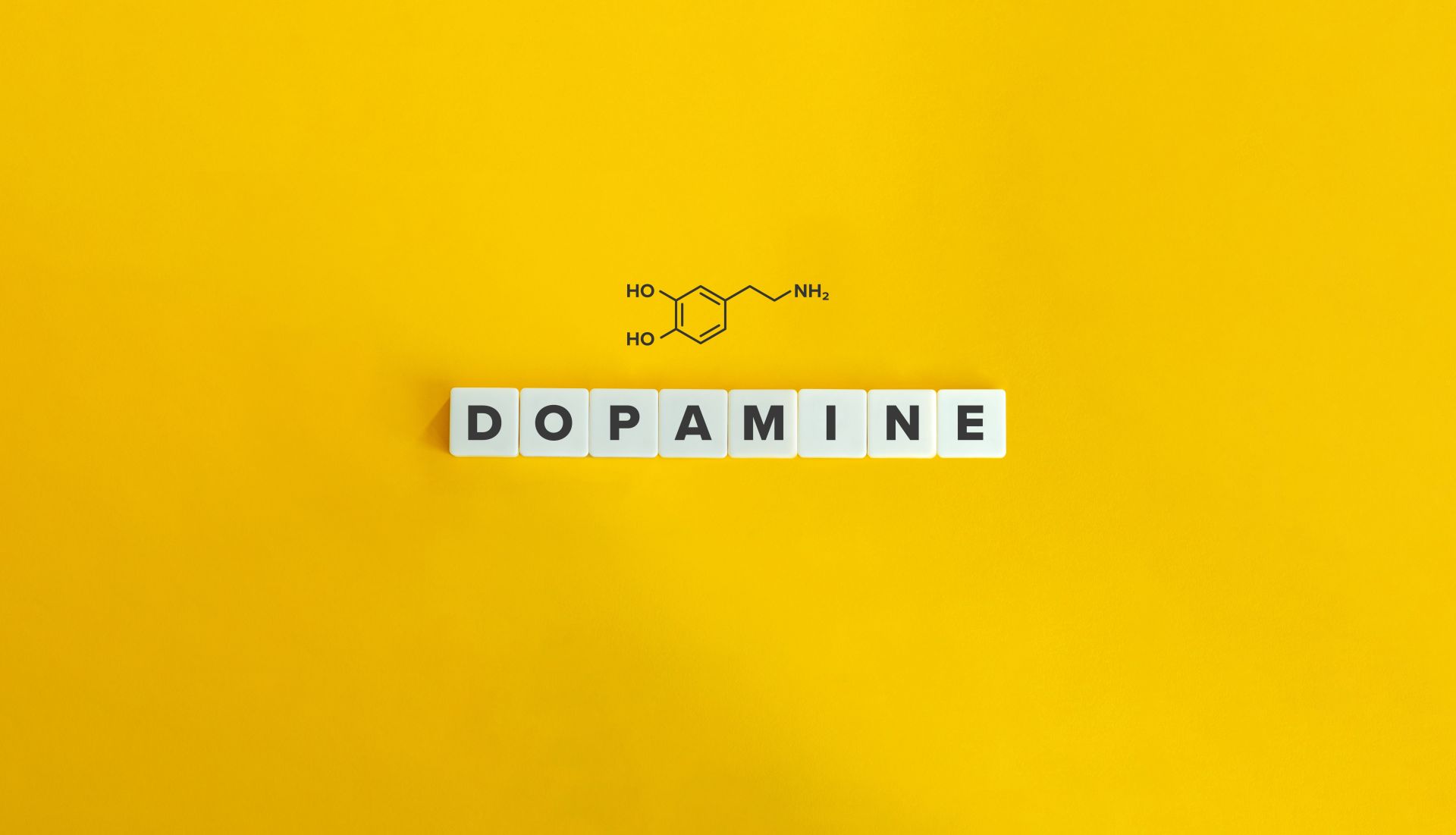Tyrosine and mood - what are the relationships?

Tyrosine is a precursor to the neurotransmitters dopamine and norepinephrine. Both have a significant effect on mood. Because of them, tyrosine has gained a reputation as a supplement that affects energy levels, concentration and stress tolerance. Let's take a closer look at the mechanisms by which tyrosine could affect mental conditioning and overall well-being. Perhaps tyrosine supplementation could be of use to you as well? Read to the end!
- How does tyrosine affect mood?
- How does tyrosine affect brain performance?
- Will tyrosine work for everyone?
- Summary
How does tyrosine affect mood?
Tyrosine is a building block for dopamine. This neurotransmitter has a huge impact on mood. It's even called one of the two molecules of happiness, because it's responsible for feelings of pleasure and satisfaction. It is the one that controls the so-called reward system in the brain.
The dopamine synthesis pathway looks roughly like this:
L-phenylalanine → L-tyrosine → L-DOPA → dopamine → norepinephrine.
Here we see that norepinephrine is further made from dopamine as well, which also has a major impact on mood, regulating fatigue, alertness and motivation.
Analyzing the literature, one can come across a study in which tyrosine was used during... a stay in Antarctica. It was tested to see how it would affect thyroid parameters and mood. There is no denying that conditions in Antarctica are an obvious stress on the body. It is during periods of increased stress that the benefits of tyrosine supplementation should be greatest, as this is when our need for dopamine and norepinephrine precursors increases. What was the study's conclusion? In summer, the effects were similar to placebo, but in winter the true potential of this amino acid had already shown itself. With supplementation with 12 grams of tyrosine a day in winter, there was a 47% improvement in mood, TSH fell by 28% and fT3 rose by 6%. In comparison, placebo use resulted in a 136% worsening of mood and an 18% increase in TSH.

How does tyrosine affect brain performance?
Better concentration, more motivation, clearer thinking, less fatigue - these are the effects we usually expect from tyrosine supplementation. This may be the case provided that the nagging symptoms are actually due to low availability of catecholamines, namely dopamine and norepinephrine. When they are not in short supply, tyrosine will not be as effective.
The best studied is the effectiveness of ad hoc tyrosine supplementation before demanding stressful situations. It then acts as a buffer, replenishing in advance the substrate for rebuilding neurotransmitters, which are used up faster during stress.
The mere fact of "insuring" ourselves against a decline in brain performance through tyrosine supplementation can make us calmer. It's a good idea to have tyrosine on hand, especially when various exams, difficult training sessions, or longer sessions of study or mental work are expected.
Will tyrosine work for everyone?
Not all studies have confirmed the effectiveness of tyrosine supplementation. Why? The main reason is considered to be that tyrosine is mainly helpful for people who, for some reason, struggle with reduced dopamine and norepinephrine availability. When a person's catecholamine metabolism is unchallenged, and mood problems have other causes, tyrosine may not work.
The function of tyrosine is to facilitate bringing dopamine and norepinephrine levels to an optimum. It is not possible for dopamine supplementation to raise the levels of these neurotransmitters above normal. Once the body "decides" that it doesn't need to use tyrosine for dopamine production, it will simply use it for other processes.
The conclusion is that before supplementing with tyrosine, it is worth evaluating whether our problems are actually due to a potential dopamine deficiency. As with most supplements, tyrosine works best when there are indications for its use.
Summary
As a dopamine precursor, tyrosine can be loaded with high expectations. Those who are aware of how strongly dopamine affects mood may also be hoping for extreme sensations when they lift it. The fact is, however, that tyrosine is not a stimulant, and as a supplement it can gently assist the brain in its quest for homeostasis. When the brain's catecholamine levels drop for some reason, tyrosine can help bring them back to optimum, but not higher. This makes tyrosine very safe, as it is very hard to overdo it.
Sources:
 ⮜ Previous article
⮜ Previous article
How to lower cholesterol? Check out natural methods!
 Next article ⮞
Next article ⮞